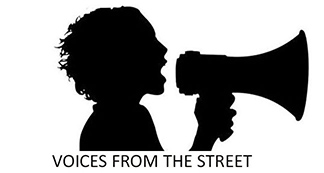Joanna Smith
May 09, 2008
Ottawa–In a forum usually reserved for peering at poverty through the lens of bureaucratic terminology, Michael Creek showed up to talk about how being poor actually feels.
“Poverty steals from your soul, leaving you with little or no hope,” Creek, 50, told a Senate subcommittee on cities yesterday. “It robs you of all that can be good in life. It leaves you isolated, lonely and hungry and that is just the start of it. Every day is a struggle.”
Creek was there as a director of the Ottawa-based National Anti-Poverty Organization, along with other experts on housing and homelessness called to share their views on taking a human rights approach to poverty issues.
He painted a moving picture of what it is like to be a poor person in his Toronto neighbourhood of Regent Park.
“To get to my apartment, I must pass drug dealers and their victims often high on drugs. The elevator often has syringes, human waste and garbage covering the floor,” said Creek. “Bedbugs and cockroaches have invaded my apartment travelling through holes left for plumbing and heating.”
At 37, Creek learned he had non-Hodgkin’s lymphoma. After chemotherapy and surgery, he went into remission but developed “debilitating side effects” that left him unable to support himself.
“I was told that I would never work again and my life in poverty began.” The former business manager said his retreat to isolation from society lasted 13 years.
Miloon Kothari, a former UN special rapporteur on adequate housing, joined the discussion via video conference from New Delhi.
Kothari was on a two-week fact-finding mission in Canada last October. Yesterday he reiterated to the senators his findings that homelessness and inadequate housing here are “a national emergency” deserving a national housing strategy.
Creek said constant federal-provincial battles over who’s responsible for social programs has caused many low-income people to develop a jaded view of what their governments can do for them.
“No one wants to take the bull by the horns and get something done,” he said. “For years now we have had this game where we play off each other. We will have to start looking at poverty, housing and human rights issues especially with a more humanistic approach instead of a political approach.”
Creek said deprivation has led many on low incomes to give up fighting for their basic rights.
“One of the scary things I hear from them is that human rights does not put any food in their tummies,” Creek said, in reply to a question about how low-income people were affected by the loss of federal funding to help them fight for language and equality rights in court.
“Many people are losing faith in human rights … it is the beginning sign of a society that will fall apart. It truly concerns me when people who are living on the edge are no longer concerned about their rights and (about) fighting for them. Parliamentarians should find that equally scary.”
Credit: Toronto Star
